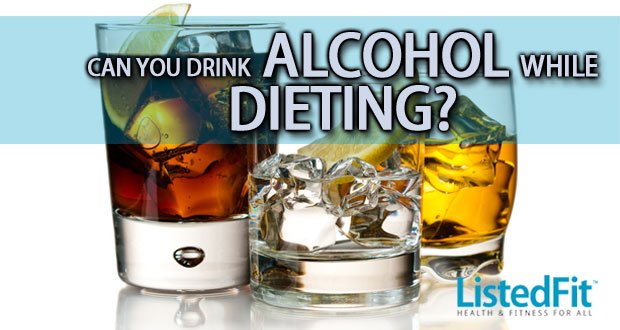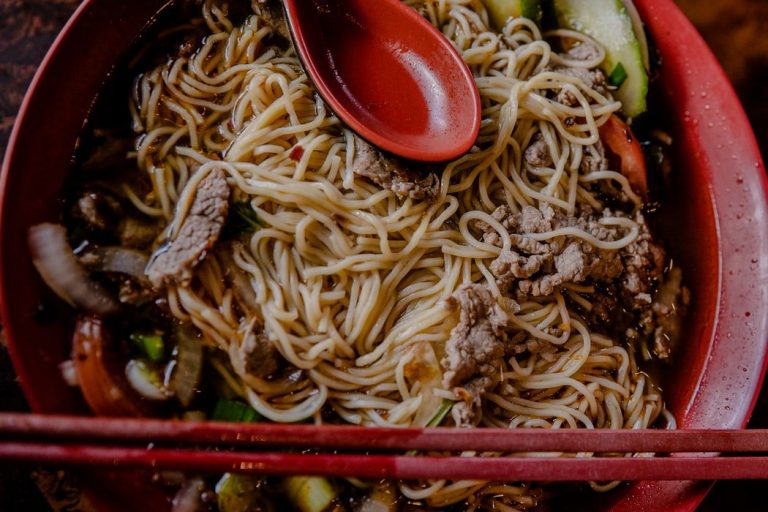Top 4 – Weight Loss Myths Busted – Are These Holding You Back?

ListedFit is reader-supported. When you buy through links on our site, we may earn a small commission.
It’s time we talked about these diet and weight loss myths that have been lingering around for far too long!
We are constantly overwhelmed with health and diet information and miss information.
With everyone from Dr Oz to your next-door neighbours claiming to be an expert in nutrition, it is easy to become overloaded with information.
While it is good that we are able to easily access health information, it should be taken into consideration that some of it may not be true.
To shed some light on this topic, this article will address and debunk common weight loss myths that may be holding people back in their weight loss journey.
In This Article…
Top 4 Diet and Weight Loss Myths Busted
Here are the four most common diet myths that have been debunked.
1. “Eating After 8 pm Will Make You Gain Weight”.

Truth: It does not matter at what time of day you eat far less for eating after 8 pm.
This is because when it comes to losing weight the only thing that matters is the number of calories that are consumed and the total amount of calories that are burned.
This is one of the most well-known weight loss myths even though it makes no sense.
If you are eating more calories than you are burning, then you will end up gaining weight, no matter the time of day the calories were consumed.
Your body is always burning calories, even while you are sleeping, which is further proof that eating food late at night will not stick around any more than food that was eaten throughout the day.
But, there are many people who tend to overeat at night, because they are bored or stressed out.
If you discover that you are a night eater, it might be a good idea to set a time limit for not eating past a specific time.
This method could help you to not exceed your overall calorie requirement.
Next time you find yourself reaching for a late snack ask yourself, am I truly hungry or just bored?
2. “Brown Sugar Is Healthier Than White Sugar”
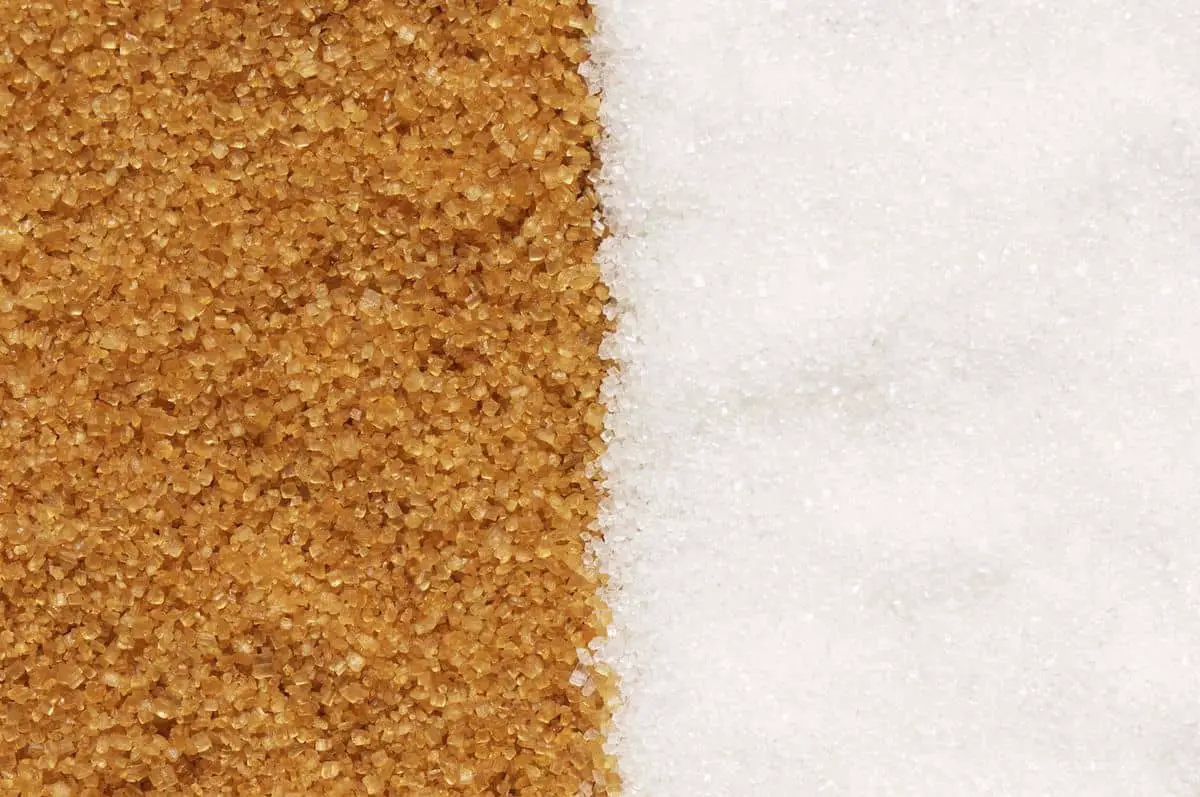
Truth: The question of is brown sugar healthier than white sugar is quite simple.
Brown sugar that comes from the grocery store is actually just white granulated sugar that has molasses mixed into it.
Even with the added molasses, brown sugar contains the same amount of calories as white sugar.
Likewise, there are no real health benefits of substituting maple sugar or honey for white sugar.
Honey can be useful to help to soothe a sore throat, but that’s an entirely different topic.
Brown sugar, pure maple syrup, and honey all have trace amounts of minerals in them.
But unless you are drinking a whole cup of maple syrup or honey, not a recommended choice, the number of minerals are insignificant.
By the Numbers:
- 1 cup of white granulated sugar = 773 calories, 200 grams sugar
- 1 cup of brown sugar = 836 calories, 213 grams sugar
- 1 cup pure maple syrup = 819 calories, 214 grams sugar
- 1 cup of honey = 1031 calories, 278 grams sugar
As you can see the number of calories and sugar content of the first three products is very similar to each other.
Honey, on the other hand, exceeds white sugar by over 200 calories.
Honey tends to be sweeter than white sugar so it is possible that you can use a smaller amount of honey and still get the same amount of sweetness.
Consider this weight loss myth debunked.
3. “You Should Avoid Carbs to Lose Weight”
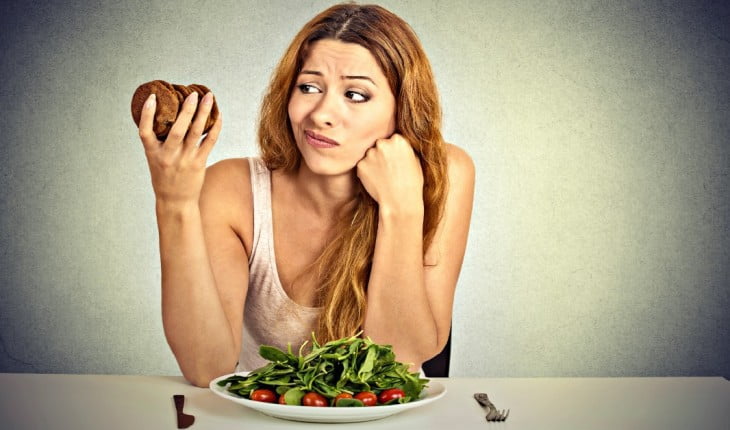
Truth: If you avoid carbs to lose weight it will in fact initially cause you to lose weight, but only because you are losing water weight.
When you start to reduce your carb intake, your body will burn glycogen instead of glucose.
Glycogen, the storage form of glucose, holds a large amount of water, which means that for the first few weeks you could see a drop in weight that is due to water loss.
If, after those first few weeks, you are still losing weight it is because you are also reducing your overall calorie intake.
The weight loss still does not have anything to do with cutting carbs.
If it works, then why not do it?
Carbohydrates are an important part of a well-balanced diet, are a good source of fiber, and also provide essential vitamins and minerals.
They are also the main energy source when you are exercising. Carbs are found in fruits, vegetables, grains, and milk products.
Choosing to eat smaller portions of carbs is okay rather than choosing to avoid carbs to lose weight, eliminating carbs altogether could lead to nutrient deficiencies.
The Academy of Nutrition and Dietetics says that a well-balanced diet should contain 50-60% calories of carbs, while 25-30% of calories should come from fat, and 15-20% should come from protein.
If you have diabetes it might be a good idea to lower the number of carbohydrates to 30-40% of calories.
4. “Too Much Sugar Causes Diabetes”

What’s the Truth?: This is one of the most common weight loss myths.
Does eating too much sugar cause diabetes?
If you have already been diagnosed with diabetes, then you do need to watch your sugar and carbohydrate intake because this will help your ability to manage your blood glucose levels.
On the other hand, if you do not have diabetes, then eating a large amount of sugar will not cause you to develop the disease.
The main cause of Type II diabetes is being overweight, have a sedentary lifestyle, or having a family history of the disease.
It is recommended that your diet should consist of a low to moderate amount of sugar because sugar contains no nutrients but has lots of calories.
The American Heart Association recommends that women should consume no more than 6 teaspoons of sugar, and men should have no more than 9 teaspoons.
Keep in mind that a typical can of soda contains around 9 teaspoons of sugar!
Hopefully, these common weight loss myths can be put to bed now.
What Exactly Is Metabolism?
Metabolism is the process through which our bodies convert the food we consume into energy. This energy is utilised for various bodily functions like breathing, blood circulation, repairing cells, and maintaining body temperature.
The total energy expended by an individual in a day can be categorised as basal metabolic rate (BMR), physical activity, and the thermic effect of food. BMR is the energy burned while the body is at rest, accounting for the majority of our daily energy expenditure.
A common myth about metabolism is that having a “fast” metabolism can make weight loss easier.
While it’s true that a faster BMR might result in burning a few more calories at rest, the influence of BMR on weight loss is often overstated. In reality, other factors such as diet, exercise, and overall energy expenditure play a more significant role in weight management.
It’s essential to understand that our bodies are unique, and metabolism rates vary from person to person. Factors such as age, gender, body composition, and genetics can all affect the BMR. It’s also important to note that a person’s metabolism can change over time due to lifestyle changes and other factors.
One misconception regarding metabolism is that certain “miracle” foods can significantly boost metabolic rates.
While some foods might slightly increase energy expenditure, like ginger, green tea, and chillies, the overall impact on weight loss is minimal. A well-balanced diet and regular physical activity are more effective strategies for achieving and maintaining a healthy weight.
Ultimately, when it comes to weight loss, focusing only on metabolism might not yield the desired results. It’s far better to focus on a balanced diet, regular exercise, and adequate sleep instead.
Are You Eating The Right Things?
When trying to lose weight, understanding the role of diet is essential. Many myths circulate about what to eat, what to avoid, and how to consume calories. In truth, healthy eating is less about sticking to strict rules and more about finding balance.
Dietary choices can significantly affect weight loss success. Calories are an important factor, as they provide the body with energy. Energy intake should be balanced with energy expenditure to maintain or lose weight. Consuming too many calories from any source, such as sugar, fat, carbs, or protein can lead to weight gain. However, not all sources of calories are equal.
Whole foods, such as fruits, vegetables, legumes, and whole grains, are generally best for weight loss and overall health.
They are often rich in fibre, which can help to control appetite and increase satiety. Processed foods, on the other hand, tend to contain higher levels of sugar, fat, and simple carbs, which can contribute to weight gain if consumed in excess.
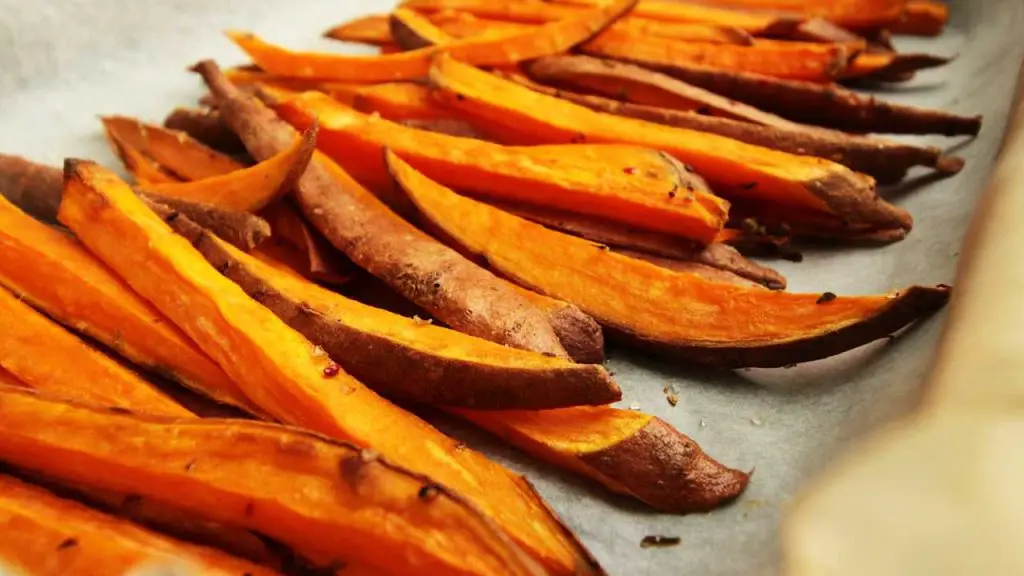
Carbohydrates are often misunderstood in dieting discussions. While low-carb diets may work for some individuals, it is essential to distinguish between simple and complex carbs. Simple carbs, found in foods like candy and pastries, can lead to blood sugar spikes and rapid energy crashes. Complex carbs, on the other hand, are found in whole grains, potatoes, and legumes and provide sustained energy over a longer period.
Protein and healthy fats are also important components of a balanced diet. Protein can help with muscle maintenance and repair, while healthy fats (such as those found in avocados, nuts, and olive oil) can aid in satiety and overall health. Balancing macronutrients (carbs, fat, and protein) in a way that works for an individual’s needs and preferences can be key to successful weight loss.
Low-fat or gluten-free options may not always be the healthier choice when it comes to losing weight. Some low-fat products can actually contain higher levels of sugar and more calories than their full-fat counterparts, while gluten-free foods may be highly processed and low in essential nutrients.
Finally, snack selection is crucial for those aiming to shed pounds. Instead of reaching for sugary or high-calorie treats, opt for healthy snacks like fruit, nuts, or yoghurt. Proper portion control is equally important, even when consuming healthier options.
Myths About Weight Loss Foods
There’s a multitude of myths surrounding weight loss foods, many of which can lead to confusion when trying to shed some pounds.
Let’s look at some of the misconceptions about different food groups, specifically fruit, grains, fats, yoghurt, nuts, gluten, salt, avocados, beans, cake, and carrots.
- One common belief is that all fruits are excellent for weight loss. While some fruits, like berries, can aid in weight loss due to their low-calorie count and high fibre content, others, such as bananas or grapes, have a higher sugar content and might not be the best choice if consumed in large quantities. Moderation is key when including fruits in a weight loss plan.
- The belief that you should avoid grains. Grains, particularly whole grains, are often thought to be off-limits for people trying to lose weight. However, whole grains contribute to a feeling of fullness and deliver essential nutrients. They can, in fact, be part of a healthy weight loss plan, as long as portion control is practised.
- There’s a persistent myth that eating fat makes you fat. In reality, consuming healthy fats like avocados and nuts is beneficial for satiety and overall health. The important thing is to opt for unsaturated fats instead of saturated or trans fats, and not to overindulge.
- Many people think that yoghurt, particularly the deliciously creamy Greek variety, must be high in calories and unsuitable for weight loss. But actually, plain Greek yogurt is high in protein and low in fat, making it a great option when you fancy a snack.
- All nuts are not fattening. It’s not uncommon for individuals to believe that all nuts are fattening due to their high-fat content. Surprisingly, nuts help control hunger and provide essential nutrients. Just bear in mind that moderation is crucial, as the calories can add up quickly.
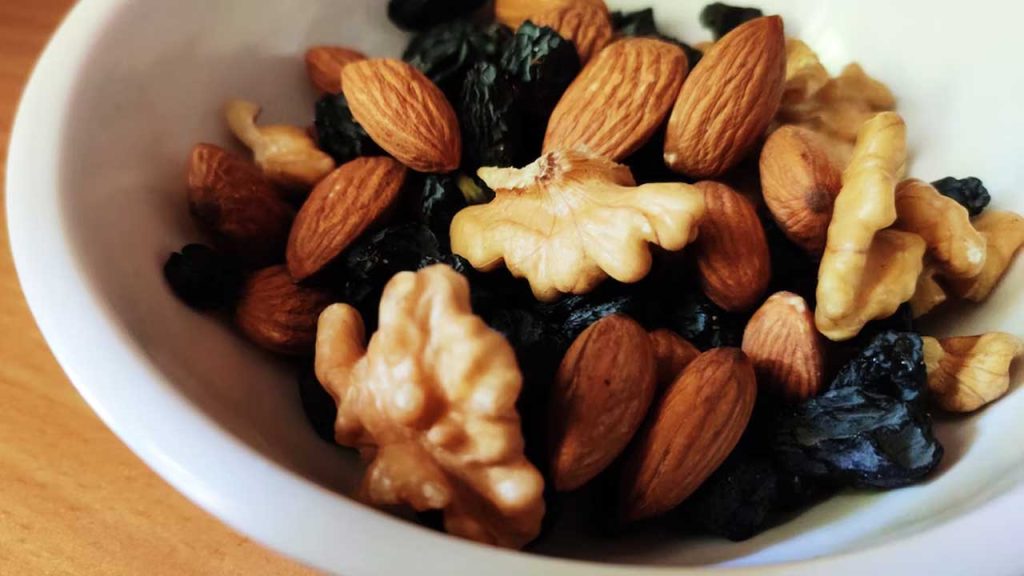
- The gluten myth. Some folks reckon that cutting out gluten, a protein found in wheat, barley, and rye, will aid weight loss. While some people may have an intolerance or allergy to gluten and need to avoid it, there’s no evidence that eliminating gluten from one’s diet leads to weight loss for everyone else.
- Avoiding salt altogether. There’s a popular idea that salt is the enemy when it comes to losing weight. Although consuming a large amount of sodium can lead to water retention, totally cutting salt from one’s diet might not be the answer for weight loss. Instead, it’s important to reduce excessive sodium while still enjoying a little salt in moderation.
- Avoiding beans. Beans are sometimes considered a no-no for dieters due to their reputation for causing bloating. In actuality, beans are packed with protein and fibre, making them an excellent choice for weight loss. Just be sure to drink plenty of water and ease into consuming beans gradually if you’re not accustomed to them.
- Avoiding cake. Some think that enjoying a slice of cake here and there will completely derail their weight loss efforts. In reality, a bit of indulgence now and then can help prevent feelings of deprivation, which may lead to bingeing. Balance and moderation are essential.
- Eating carrots. Lastly, let’s address the misperception that eating carrots will magically melt away the pounds. While carrots are low in calories and high in nutrients, no single food can lead to weight loss on its own. It’s important to create a balanced diet filled with a variety of fruits, vegetables, and other nutrient-dense foods.
What Are ‘Healthy’ and ‘Unhealthy’ Foods?
There’s a lot of chatter about what constitutes healthy or unhealthy food, with lots of folks offering their two cents on the matter. Here, we’re going to debunk a few myths and misconceptions in a casual and relatable way.
First up, let’s tackle the idea that all processed foods are bad and whole foods are always better. Sure, it’s true that whole foods tend to be packed with more nutrients, but there are also processed foods that are made to be healthier options. For instance, wholegrain cereals and fortified dairy alternatives can provide valuable vitamins and minerals. It’s about balance, people!
Another myth is that one should always opt for a low-carb or low-fat diet when trying to lose weight. Turns out, our bodies need a mix of nutrients, including carbs and fats, to function optimally. Instead of cutting out entire food groups, it’s more about finding the right balance of good carbs, fats, and other nutrients.
Next up, juice cleanses. Some people believe that these liquid diets will help detox their bodies and aid in weight loss. However, a more sustainable approach to maintaining a healthy weight and innards would be following a well-balanced eating plan incorporating a variety of foods, including lean meats and plenty of veggies.
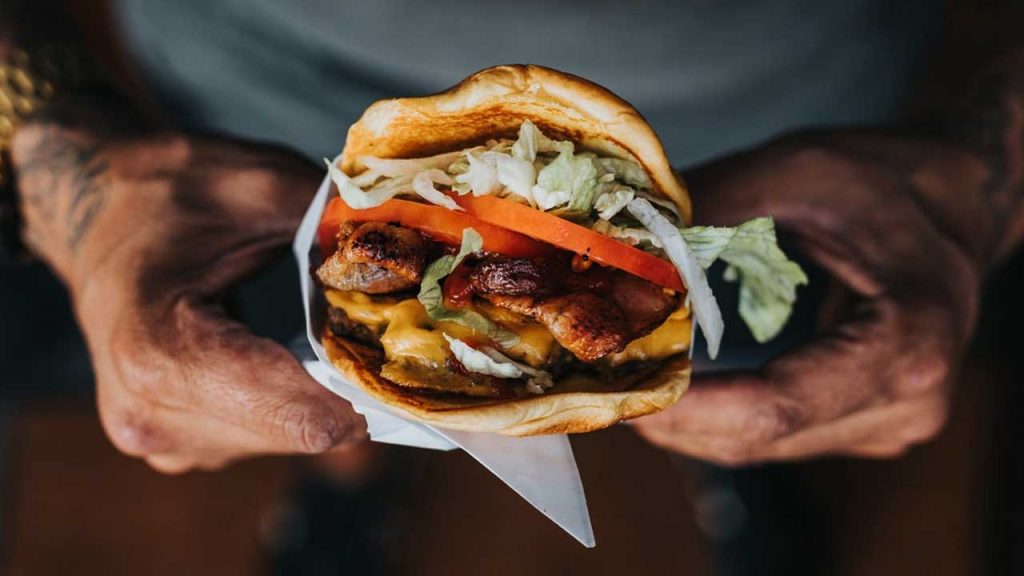
Now, who hasn’t heard the notion of “junk food” being an absolute no-no? Well, think again. While it’s not recommended to consume such foods in excess, treating yourself to the occasional indulgence can help prevent feelings of deprivation, making it easier to stick to a healthier eating plan overall.
Saturated fats have long been vilified as evil contributors to heart disease. However, recent research shows that consuming moderate amounts of high-quality saturated fats, like those found in dairy and meat, isn’t as bad as we once thought. Again, it boils down to balance and quality.
Lastly, dairy products and lean meats are often thought of as unhealthy, but they can actually be vital sources of nutrients and protein. As part of a well-rounded diet, these food items can contribute to better health and weight management.
In summary: don’t believe everything you hear. Eating a balanced diet, including a mix of different foods in moderation, is key to achieving and maintaining good health.
Frequently Asked Questions
Does skipping meals help in weight loss?
Skipping meals, particularly breakfast, is a common misconception when it comes to weight loss.
Although it may seem like a quick way to reduce calorie intake, skipping meals can often lead to overeating later in the day.
Instead, focus on regular meals with balanced nutrients.
Is eating late at night harmful for weight loss?
Eating late at night is not necessarily harmful for weight loss. However, what matters more is the overall calorie intake and the nutritional quality of the food consumed.
Eating high-calorie, unhealthy foods late at night may contribute to weight gain. It’s crucial to pay attention to portion sizes and choose healthy, nutrient-dense foods.
Are all carbs bad for losing weight?
Contrary to popular belief, carbohydrates are not inherently bad for weight loss. In fact, complex carbohydrates, such as whole grains, vegetables, and fruits, are essential for providing energy and nutrients.
Simple carbs, found in sugary and processed foods, should be limited as those can lead to weight gain and spikes in blood sugar levels.
Can you lose weight with only exercise?
While exercise is vital for overall health and can help in weight loss, focusing solely on exercise without considering dietary habits might not be successful.
Combining regular physical activity with a balanced diet is crucial for achieving and maintaining a healthy weight.
Does drinking water boost metabolism?
Drinking water can have a slight effect on metabolism and help with weight loss efforts. When the body is well-hydrated, it functions more efficiently, which can lead to better overall calorie burning.
Additionally, drinking water before meals can help control portions and prevent overeating.
Are fat-free foods better for losing weight?
Fat-free or low-fat foods are not necessarily better for weight loss. Whilst they may have fewer calories, they may also contain added sugars or artificial ingredients to make up for the lost flavour.
It’s essential to read labels, consider portion sizes, and choose healthy fats found in foods like nuts, seeds, and avocados.
Author
- Danny Loeb is a qualified Personal Trainer, Fitness Model and Writer. He enjoys blogging about health and fitness, messing around with Photoshop, and sharing his experiences with everyone.
Latest entries
 NutritionFebruary 6, 2024What Are Fillers in Supplements? – Unveiling Inactive Ingredients
NutritionFebruary 6, 2024What Are Fillers in Supplements? – Unveiling Inactive Ingredients FitnessAugust 23, 2023Best Post-Workout Foods: Great Ideas for Recovery and Results
FitnessAugust 23, 2023Best Post-Workout Foods: Great Ideas for Recovery and Results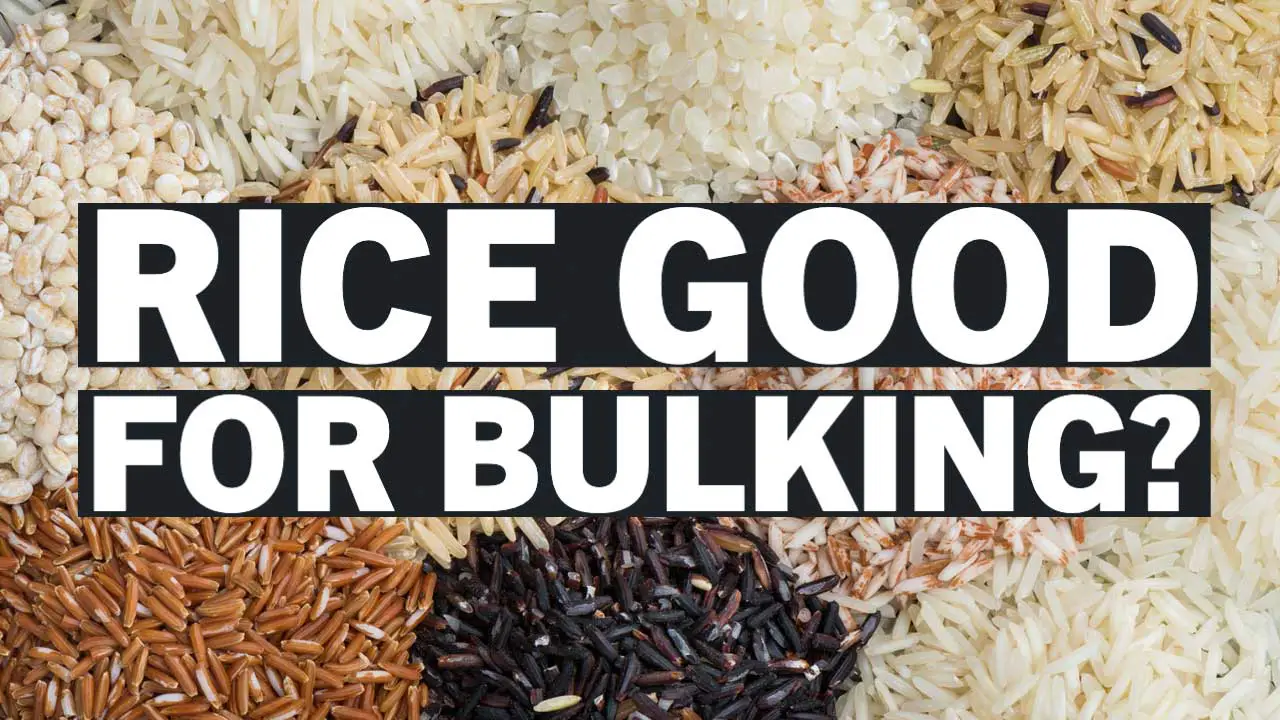 BulkingJuly 26, 2023Is Rice Good for Bulking? Unveiling the Truth
BulkingJuly 26, 2023Is Rice Good for Bulking? Unveiling the Truth CultureJuly 15, 2023Why Do People Hate Planet Fitness? Read This Before You Join!
CultureJuly 15, 2023Why Do People Hate Planet Fitness? Read This Before You Join!
Affiliates:
This post may contain affiliate links that at no additional cost to you, the site may earn a small commission. We only recommend products we would use ourselves and all opinions expressed on this site are our own.
General Advice:
The information provided in this article is for general informational purposes only. It is not intended as a substitute for professional advice. Always consult with a qualified healthcare professional before starting any new diet, exercise program, or making changes to your health routine.
Accuracy Advice:
While we strive to provide up-to-date and accurate information, the content in this article may not reflect the most current research or medical guidelines. We encourage readers to do further research and consult with professionals for more personalized advice.
Our Recommendations:
The products and services mentioned in any of our articles are recommended based on our independent research and personal experience. We are not sponsored by any company. We aim to suggest products and services we believe are of high quality and could be beneficial to our readers.


